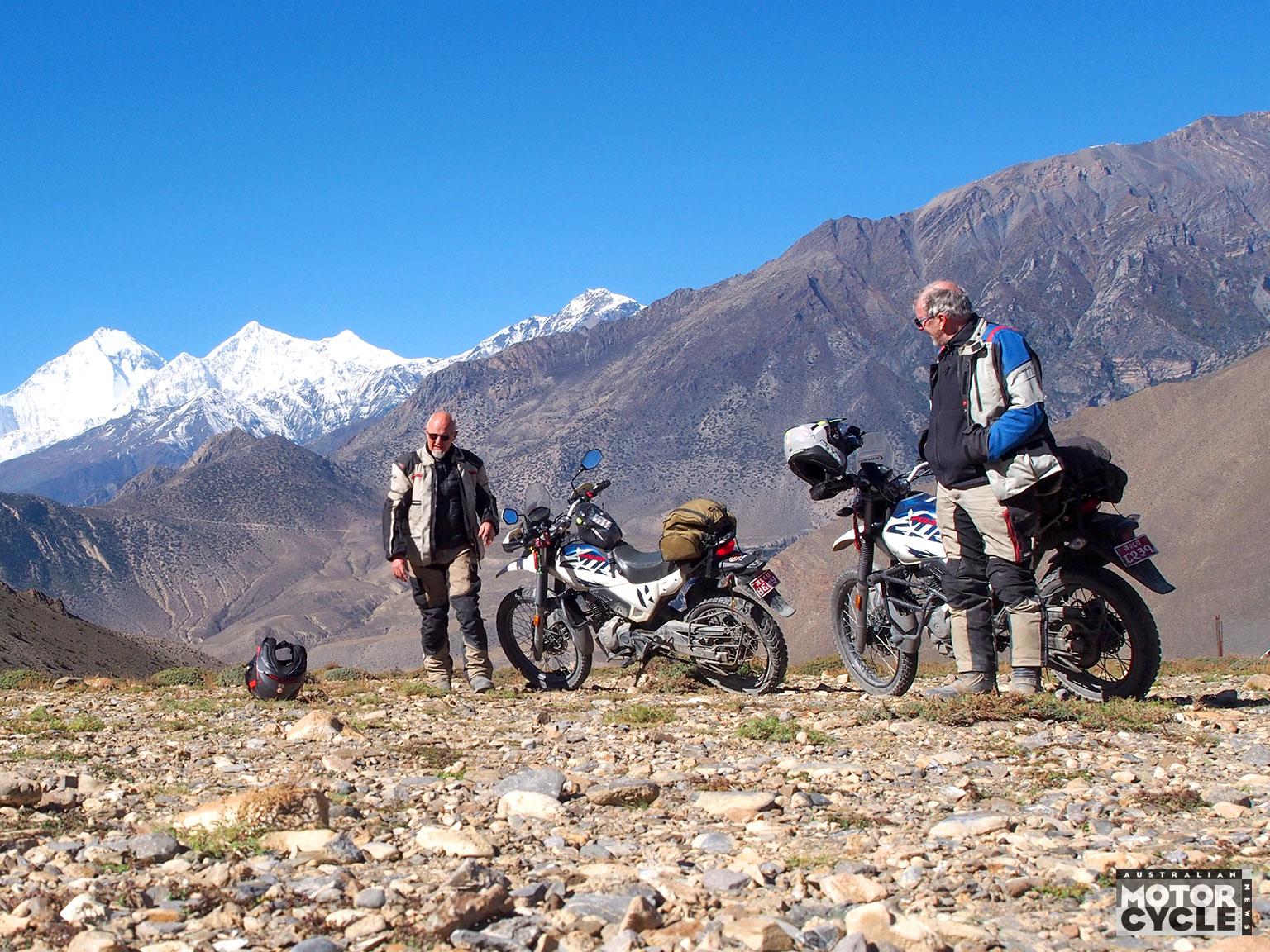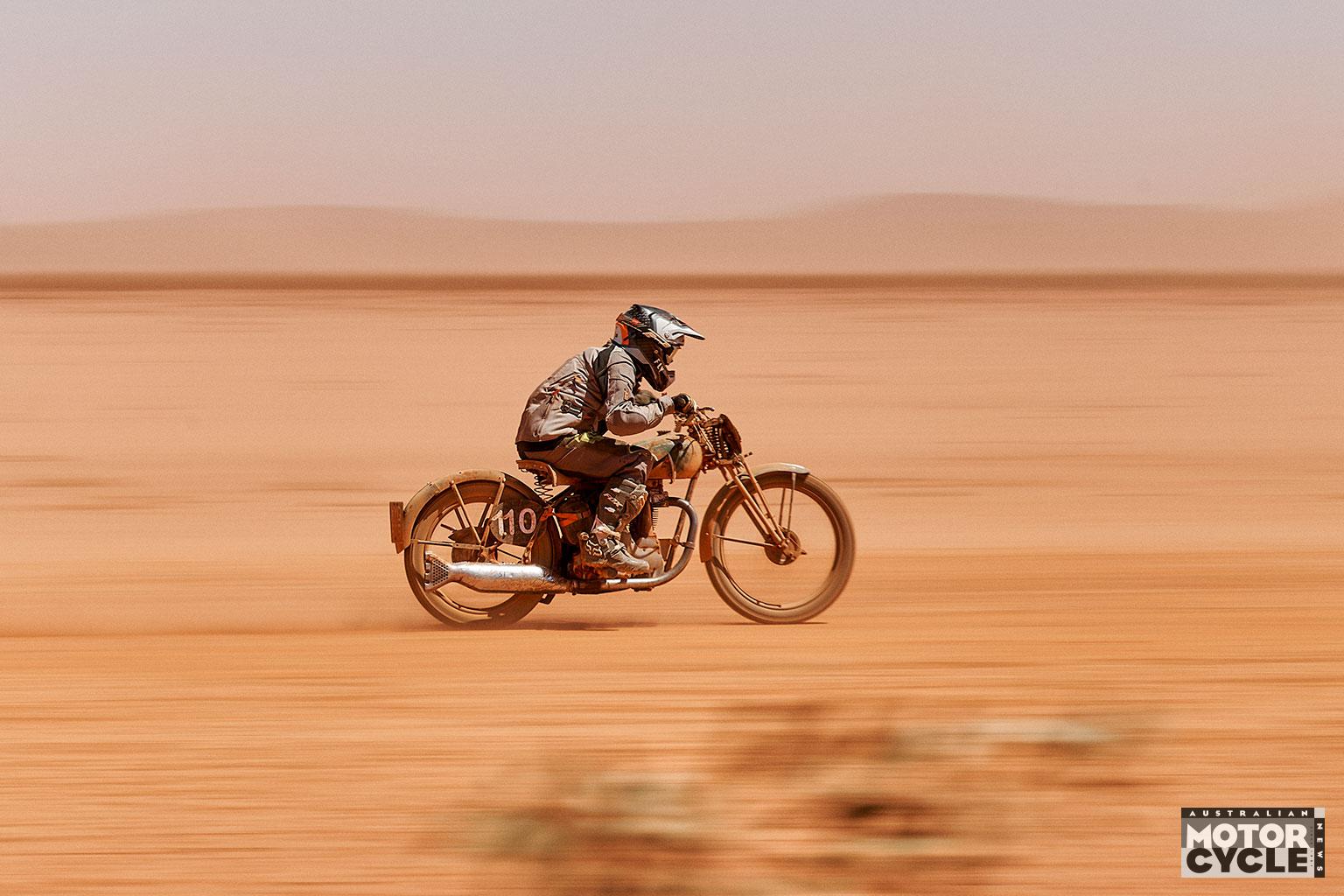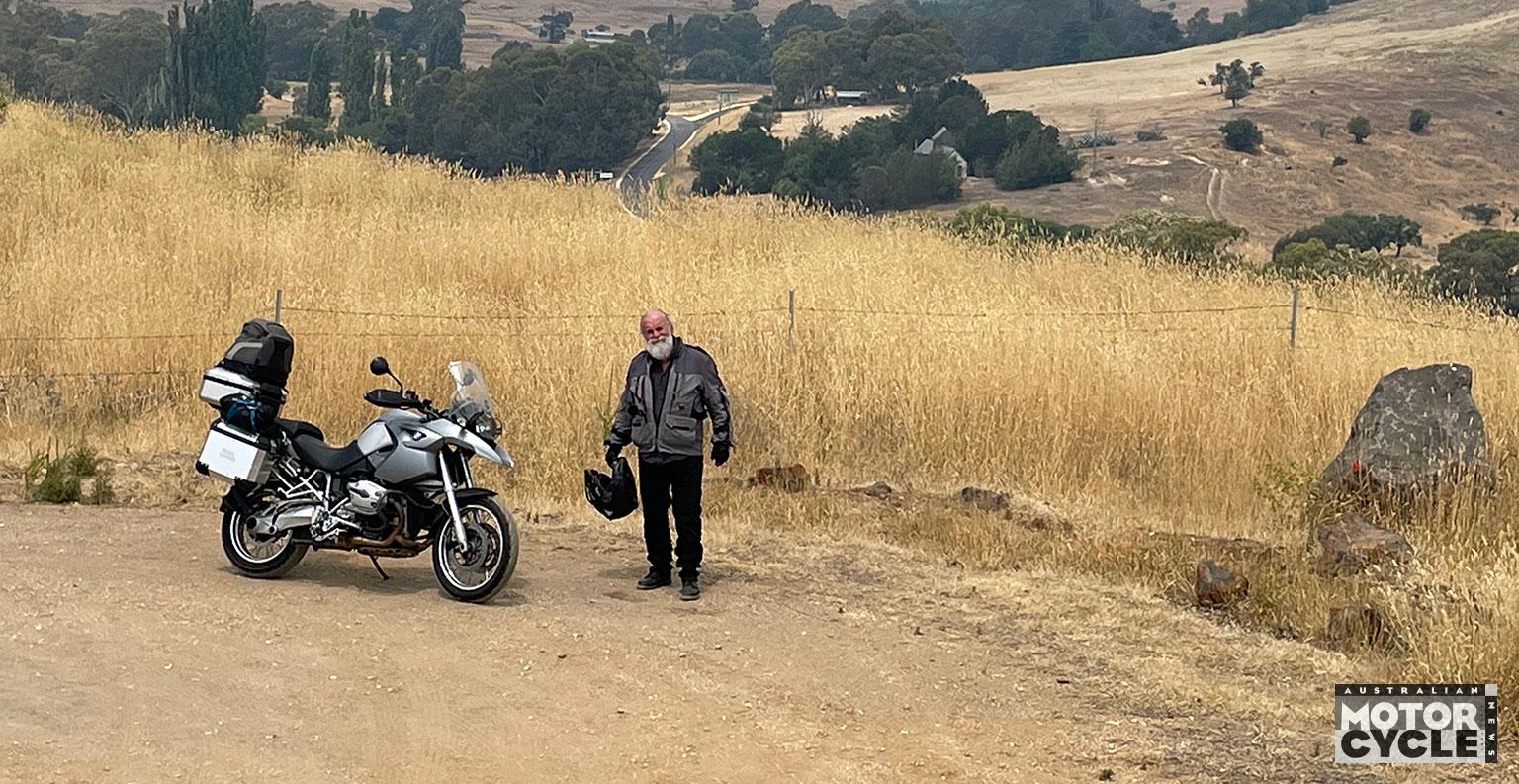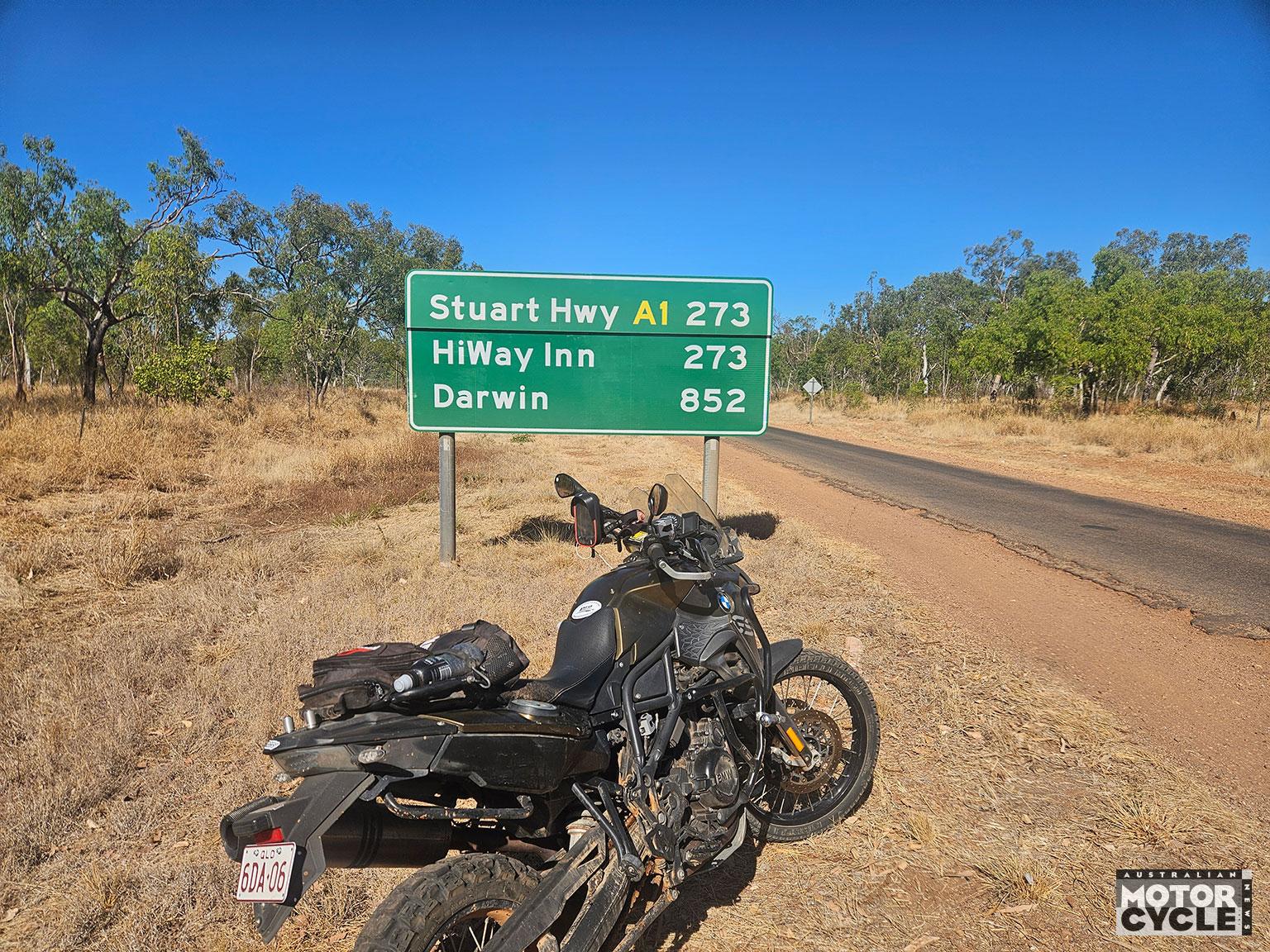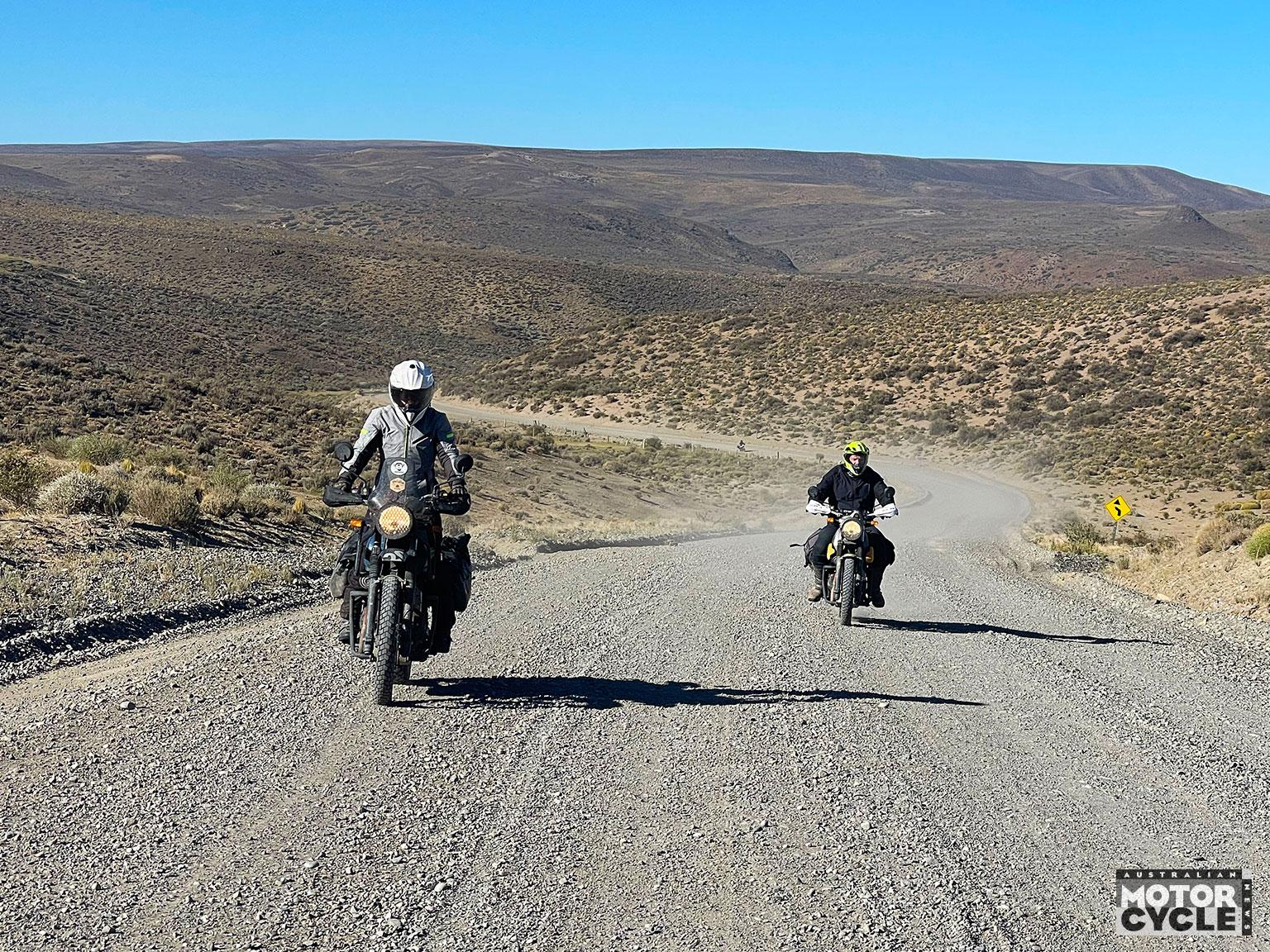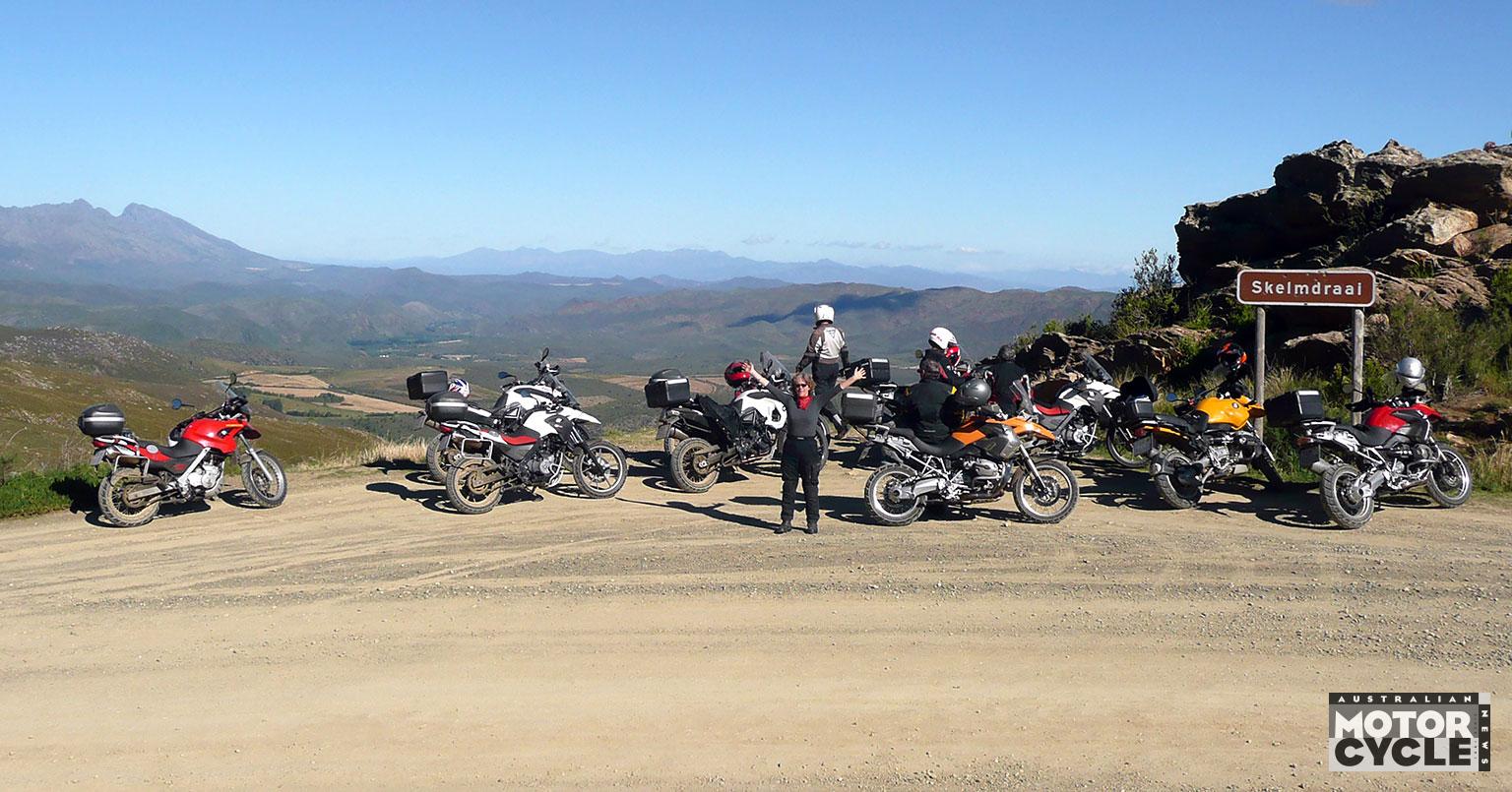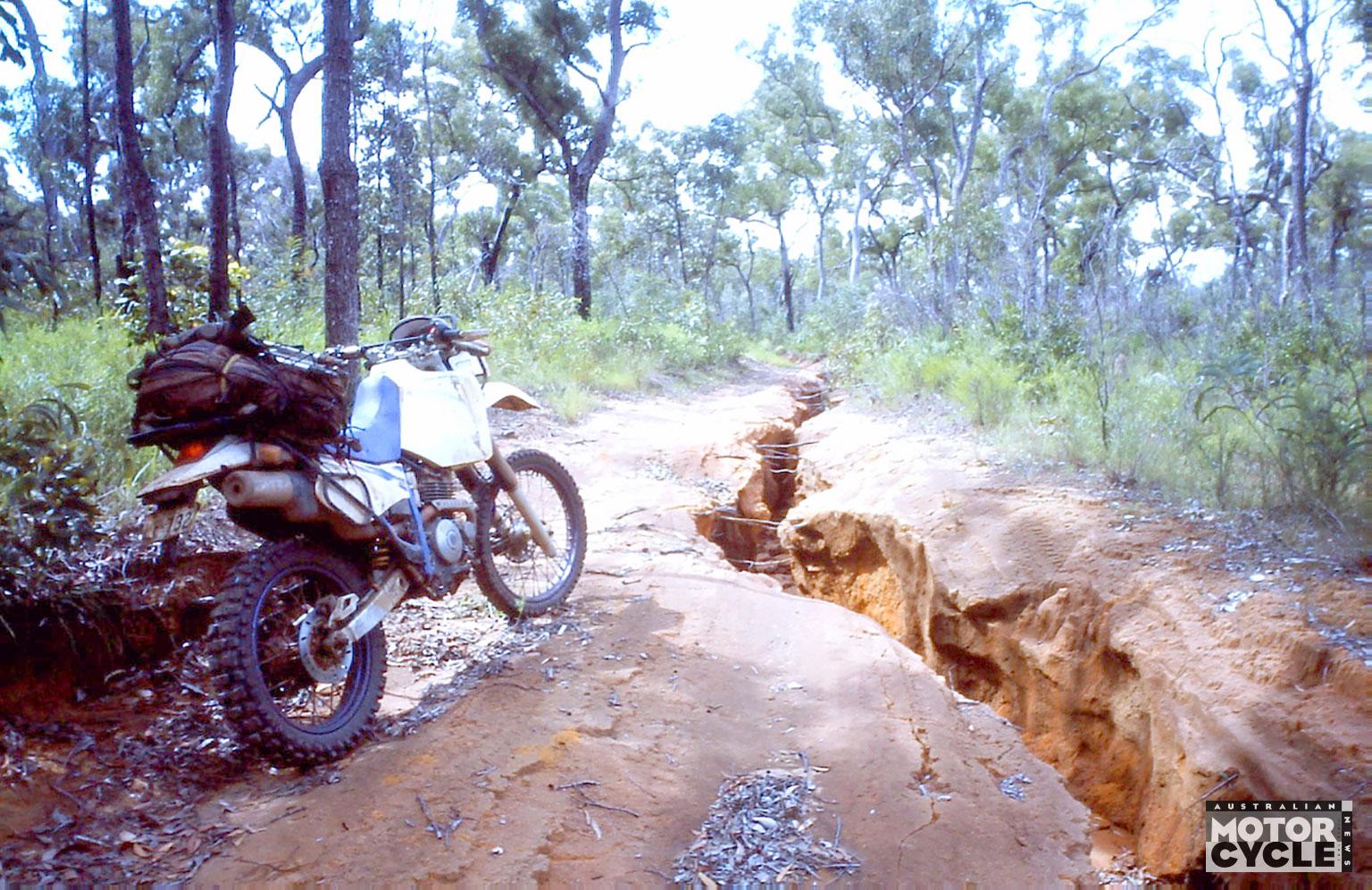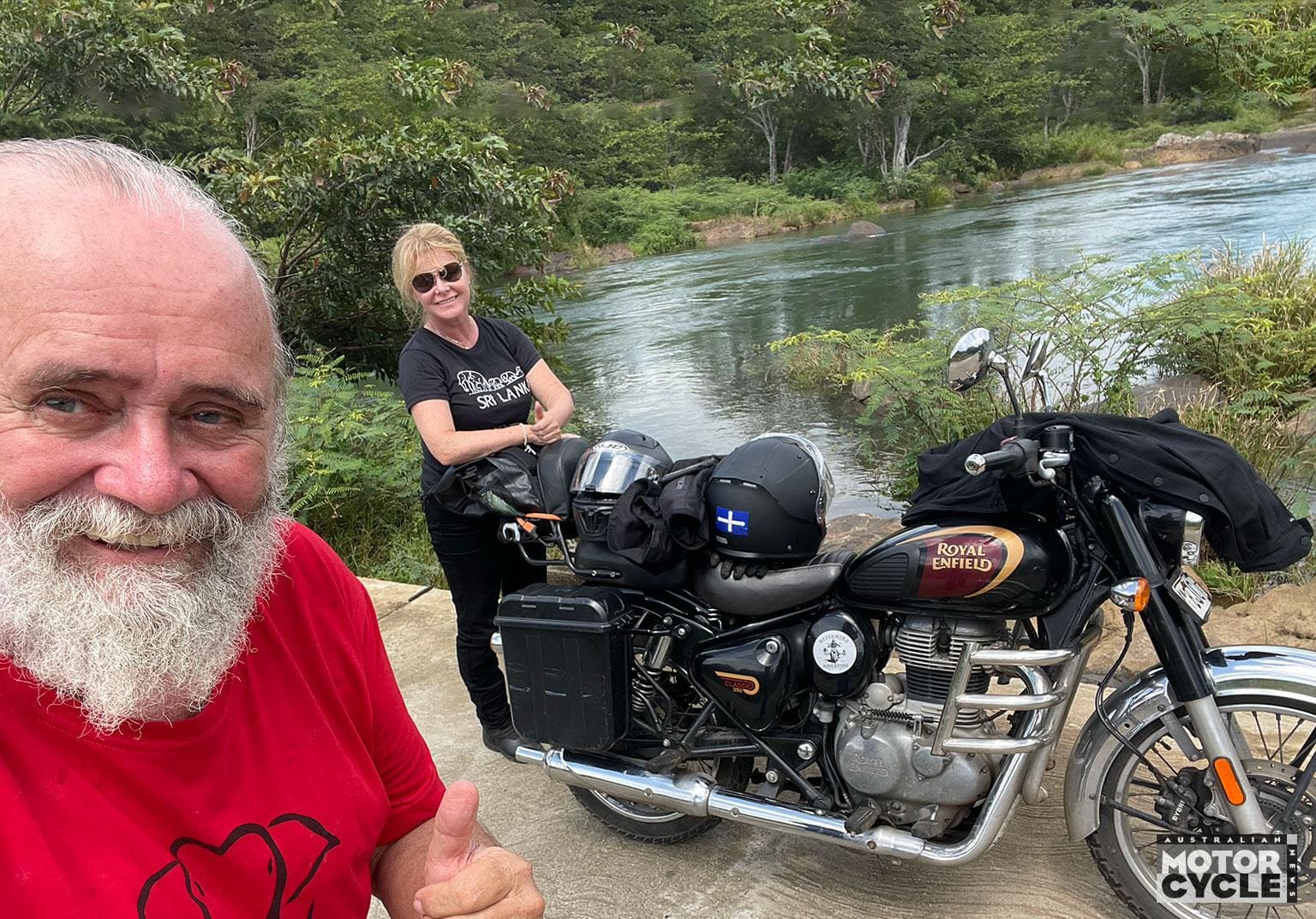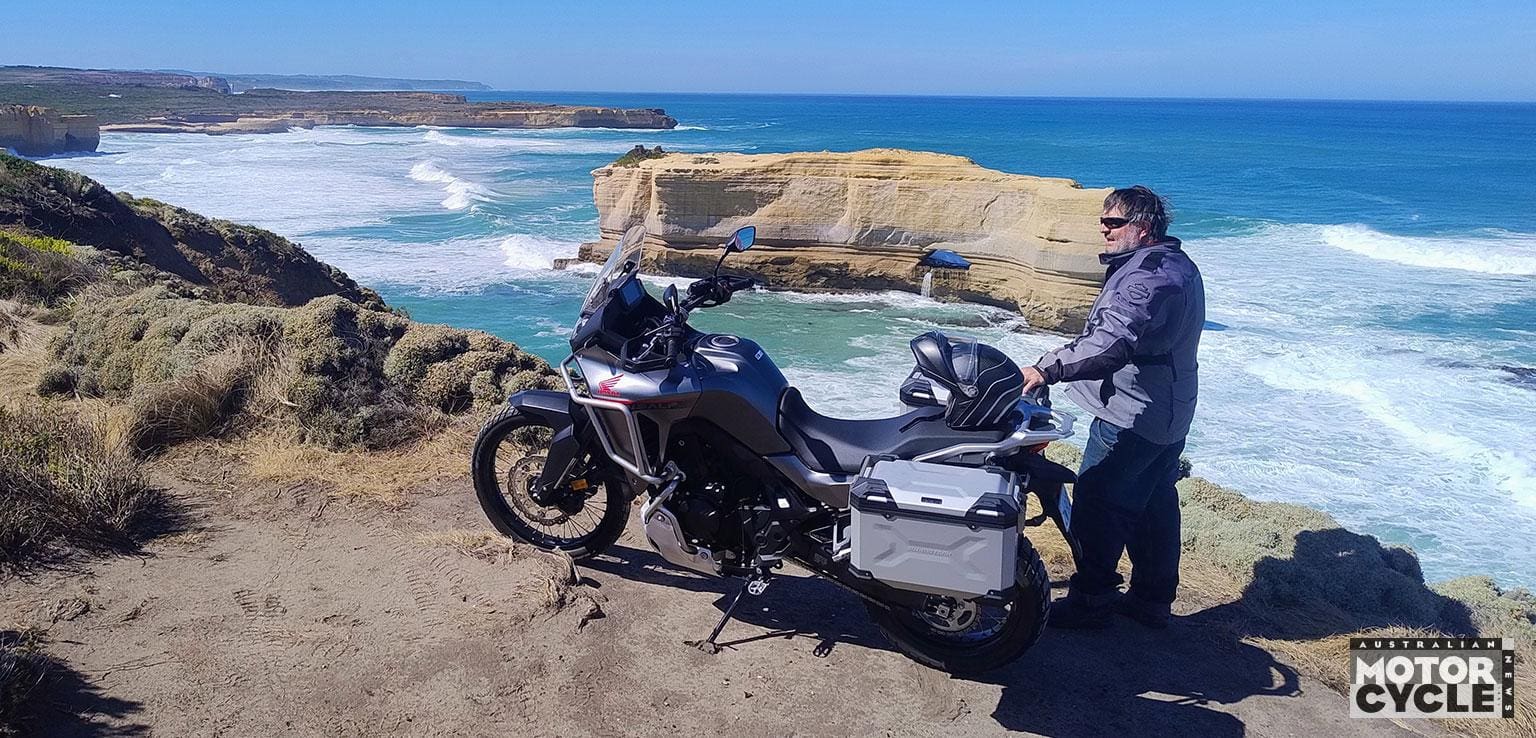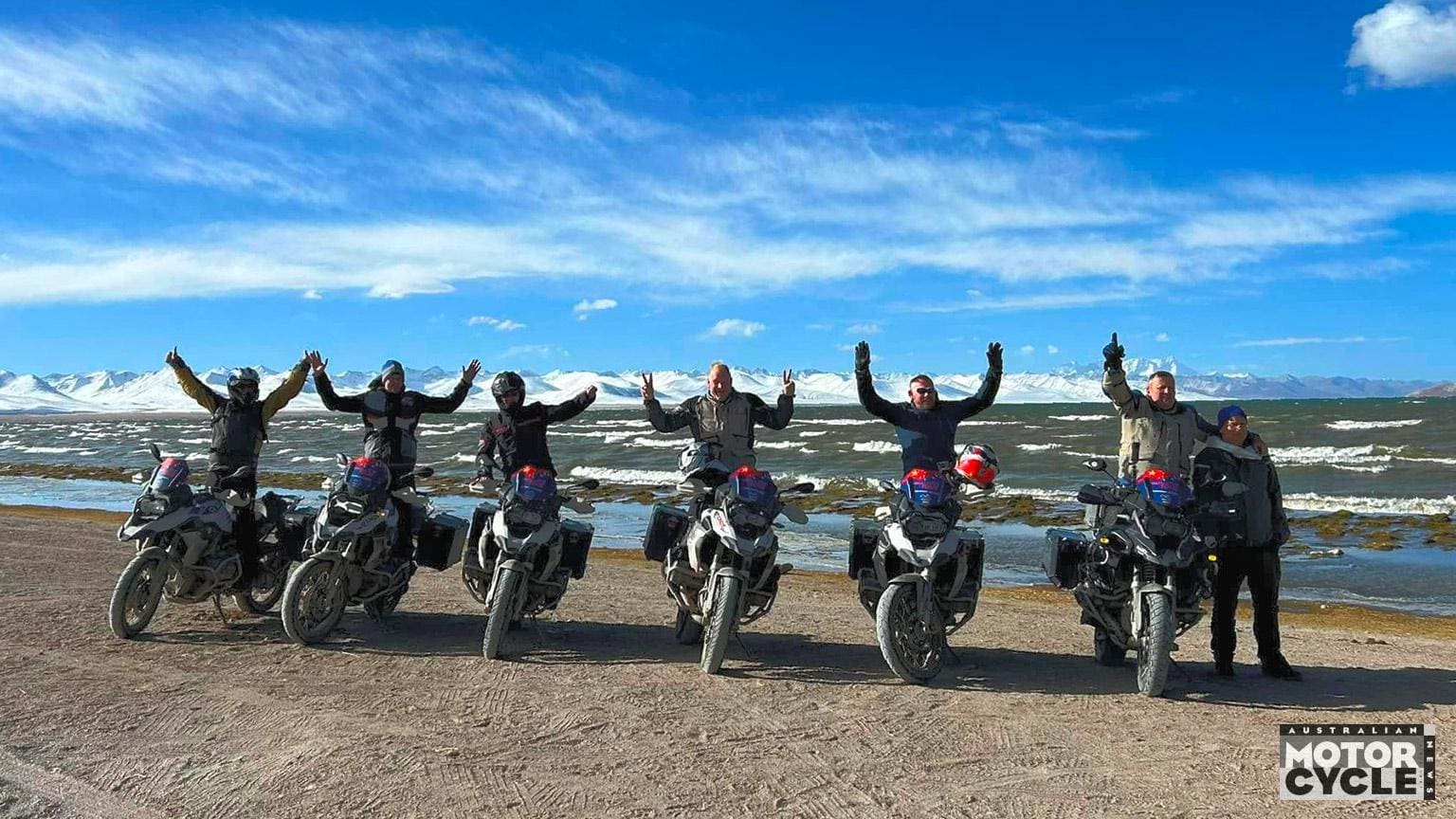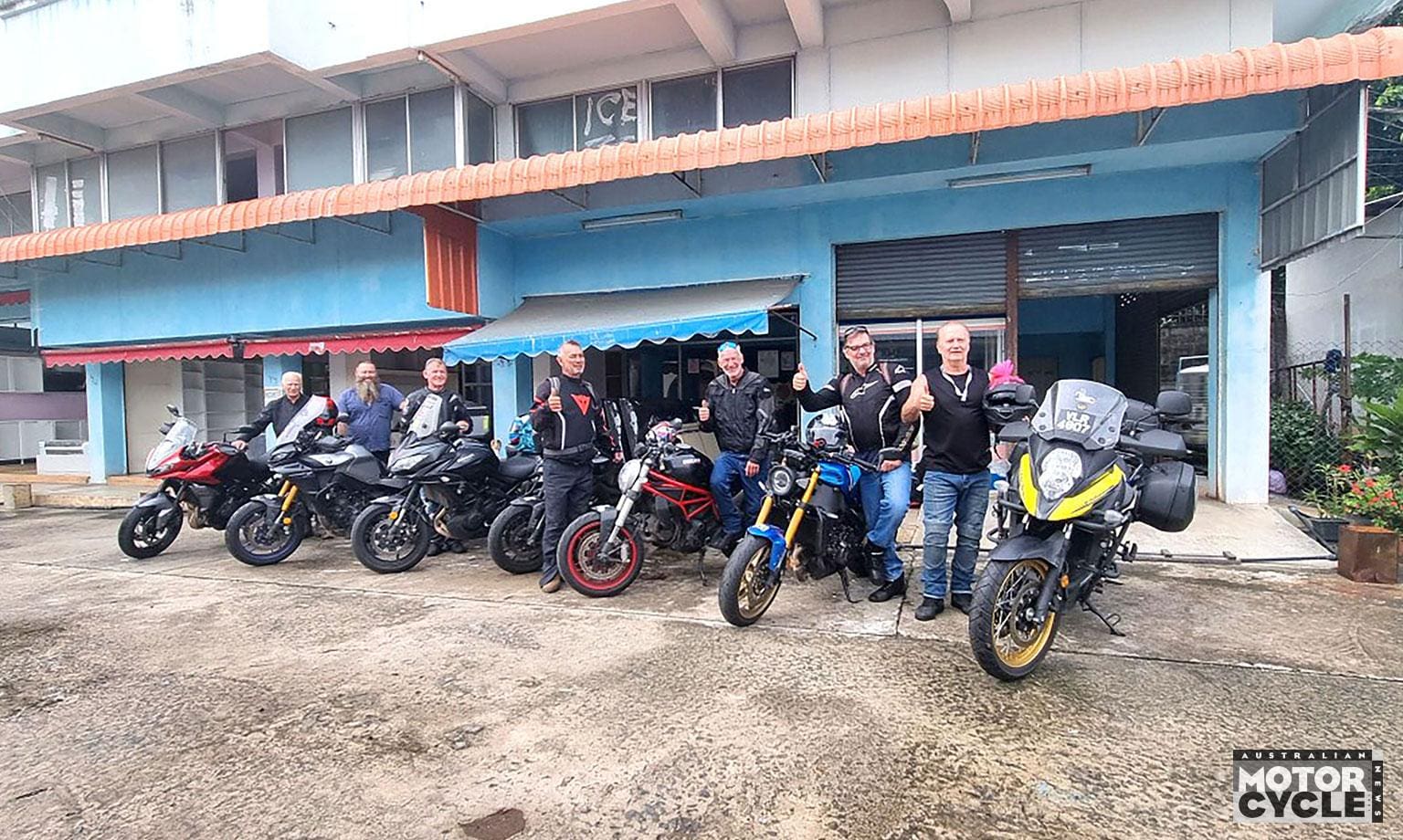I can’t look away from the staring soldier, clutching his AK-47, behind the fence. He tilts his head in confusion, slings his gun over his shoulder and flicks through a set of keys to unlock the barbed-wire gate. He drags it open, points towards a small hut and locks the gate once we’re through.
Six guards come out of the hut, their eyes examining us. Alissa sits quietly on the back of the XT, covered in silk scarfs in the baking sun. She nervously pulls her sleeves tighter over her gloves. Sweat and heat builds inside her helmet, but she can’t take it off in front of them. The online warnings screamed women should cover their entire body, not look at or talk directly to men, only communicate through their male partner and, under any circumstances, never shake a man’s hand.
We get off the XT and the men approach. Our hearts pound as we stand helpless… “Welcome to Afghanistan!” They stand in front of us with beaming smiles and outstretched hands. Is this a test? Alissa hesitantly lifts her hand and a guard shakes it with a gentle grasp before pulling us into the hut for tea.
We’ve spent hours at borders before, but never like this. Four hours of laughing and joking fly by. We’re squashed up in a hut filled with guards, our helmets are off and we’re drinking tea and sharing food. The online warnings couldn’t have been more wrong. They take it in turns shooting selfies with the bike and admiring its many battle scars. The hardest part is understanding the paperwork. A guard keeps stabbing at a blank piece of paper with his pencil and pointing at himself. As not a word of English is spoken, it takes us a while to figure out that he wants to see his name, ‘Kamil’, spelt in English so that we remember him. We tell him we’ll never forget it.
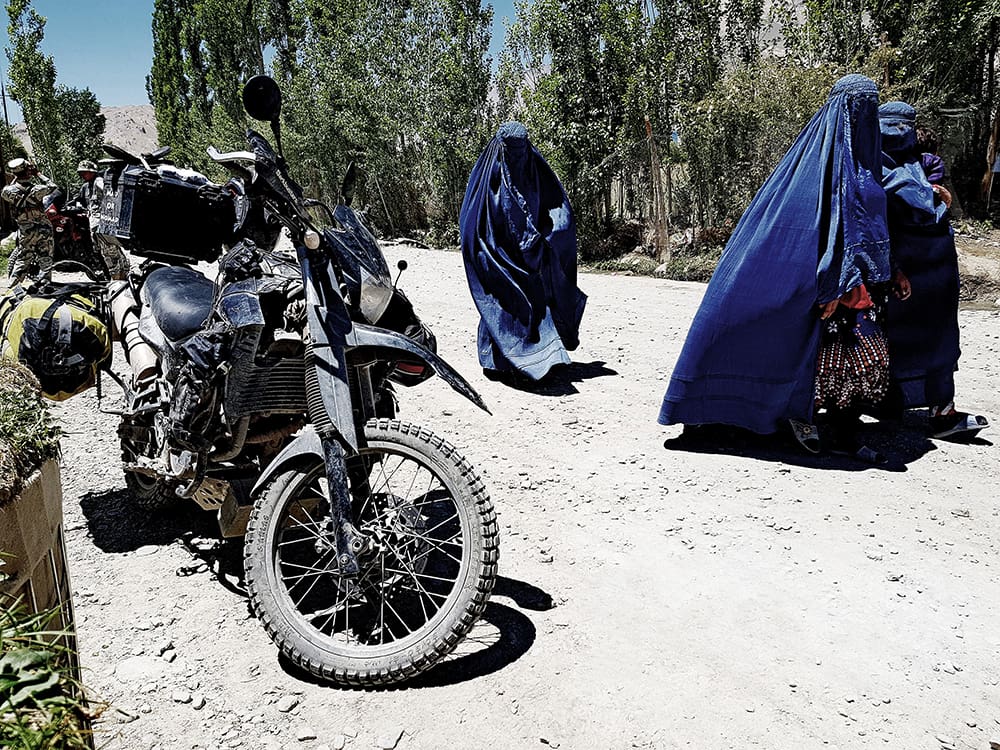
Cowboys and burqas
We eventually leave the border and start our ride to the main town of Sultan Eshkashim. It’s like riding through another world. Abandoned Soviet tanks line the road, acting as a bleak reminder of Afghanistan’s long history of war. Women float along like ghosts in their iconic blue burqas as children play in streams and men gallop past on horses, guns slapping against their backs as they ride.
We follow the horses to the town and step into an old cowboy film. The riders have disappeared, it’s just after sunrise and nothing’s open yet. Dust clouds blow across the sandy street and wooden doors creak. We slowly trot through on our metal horse, looking for the local saloon and registration office. As soon as we hit the kill switch, we’re surrounded. People appear from nowhere, staring at us and the bike. The XT takes one last nervous gulp and cuts out. It’s been struggling with poor fuel quality since Uzbekistan and is getting worse.
A man pushes through the crowd. He’s a science teacher at the local school and speaks a little English. He tells us that the police chief is at a family picnic today and we should find somewhere to sleep and come back tomorrow to register our stay.

Aladdin and the Sultan
We return to a completely different town that has come alive in the afternoon sun. Sultan Eshkashim is filled with rickety timber shacks bursting with colourful clothes, pots, pans and jewellery. It’s like walking through a scene from Aladdin, and we may as well have a genie above our heads the way hundreds of eyes fix on us.
A few people speak English and explain how happy they are to see foreigners. Everyone wants their photograph taken and crowds gather to see the pictures. Kids ask for money in most countries we visit, but not here, they just walk alongside us smiling and offering to share fruit. Everyone wants to shake hands, welcome us and politely ask Alissa if they can pose in pictures with her.
We’re so at ease, Alissa even asks a woman in a blue burqa if she can take her photograph. We hear the woman giggling behind her veil as she nods, posing as best she can with her child in her arms for the camera. The town takes us by surprise and now we’re the confused ones. We didn’t know what to expect, but this wasn’t it.

Welcome to the Wakhan
We came to Afghanistan to ride into its legendary Wakhan Corridor, otherwise known as the ‘Roof of the World’. The Afghan town of Sultan Eshkashim protects the entrance to the thin 220-mile panhandle that stretches from Afghanistan to China. It’s flanked by Tajikistan to the north and Pakistan to the south and there’s no other way in, as the land is encircled by three of the world’s highest mountain ranges – the Hindukush, Pamirs and Karakoram.
Before we can leave Eshkashim and ride into the Wakhan, the police ask us to sign papers saying we’re responsible for ourselves. A few hours, 10 phone calls and eight more selfies later and we’re granted permission to enter one of the most isolated and inaccessible places on earth.
We had just ridden 12,900km from the UK to get here, but nothing prepared us for these roads. The mountain track has us trapped on a skinny path with a steep cliff drop to our left and a jagged wall to our right. It’s too steep to stop and too tight to turn around. The trail torments our tyres, sharp rocks shredding rubber one minute and sand traps swallowing the bike the next. The XT clatters over boulders, smashing the sump guard as we rattle down the mountain. Sweat tickles my nose as I wrestle with the bars, pleading with the bike to stay in the middle of the narrow path while pretending I can’t smell burning brakes as we skid down.

The further down we go, the more the path crumbles and disintegrates until it eventually disappears and we’re left on a flat plateau. We spend so much time concentrating on the roads and baking sun that we forget to look up and watch the magic unfold in front of us… We’re in the heart of the Wakhan Corridor.
Soaring snow-capped mountains tower either side of the trail, fortifying the long straight stretch from the outside world and fencing us in. It’s one of the most remote places on earth and there’s nowhere we’d rather be.
We need to keep moving if we’re going to make it to the next village before nightfall. In the distance we spot another trail leading up a mountain and hope there’s a village somewhere on the other side. I pin the throttle and let the handlebar go loose as we slice through sandpits. We fly sideways and spit concoctions of gravel and mud as the XT blasts up mountains so high, they almost pierce the sky.
The sheer nothingness is spectacular and standing on top of the mountain we’ve just ridden up takes our breath away.

Life on the roof
Men with guns approach as we pull into Qazideh village. We explain that we want to camp, they check our paperwork and show us to a beautiful green garden with a stream.
A sweet 12-year-old girl offers to show us around her village and takes us to meet her family – and then to what feels like every other house in the village. The people welcome us in like honoured guests, proud to show us around their homes. We stroll through lush green fields scattered with brightly coloured flowers and children tending their animals in the pastures.
As we set up our tent, the villagers bring us food, fresh yoghurt and tea while kids run around the motorbike playing. The people have so little, but they share everything. The hospitality is incredible and we can’t help but feel humbled … and so glad we came.
My mind drifts back to the night before we crossed the border, sitting in our room, wondering what the hell we were doing and if it’d be dangerous. We did feel safe in Sultan Eshkashim, but there was an underlying sense of uneasiness. Soldiers in shemaghs and sunglasses walked around with rifles, the town was fortified and police blasted around in pick-up trucks with machine guns strapped to the roofs to protect the town and the entrance to the Wakhan Corridor. The Wakhan is Taliban free, and they intend to keep it that way.
Up here in the Corridor, there’s no internet, no fighting, no blue burqa and women don’t cover their faces. The harsh and remote land is protected by the Pamir Knot of mountains, allowing the Wakhi inhabitants to live an ancient way of life, undisturbed for decades and far removed from what we see on our screens.

The village elder breaks my thought as he sits beside me to wish us well. We don’t want to leave… but the XT does. The Yamaha has been struggling and the altitude is choking her. It’s not the ideal place to start working on the bike so we make our move back to the border.
We’re stopped at a military checkpoint a mile before the Afghan and Tajik borders. The gate is up, we’re not allowed through and the soldiers tell us that the main borders are closed.
As much as we’d love to stay longer, we can’t. We persist for half an hour, smiling and trying to persuade them to at least let us speak to the border guards. Finally, out of annoyance, one of the soldiers agrees to accompany us to the Afghan border post – just to prove that the border guards won’t let us through.
We’re met with a beaming and familiar smile… Kamil! He tells the military to let us through but explains that the Tajiks won’t open up as they’re having time off and are probably asleep. He calls a Tajik guard and gives me the phone. After some sweet-talking, he agrees to open up. An hour later, we spot a sleepy Tajik soldier strolling towards the border, swinging a set of keys. We finish our last cup of Afghan tea and shake hands with our friends.
We point at the paper now filled with names and tell them that we’ll never forget.
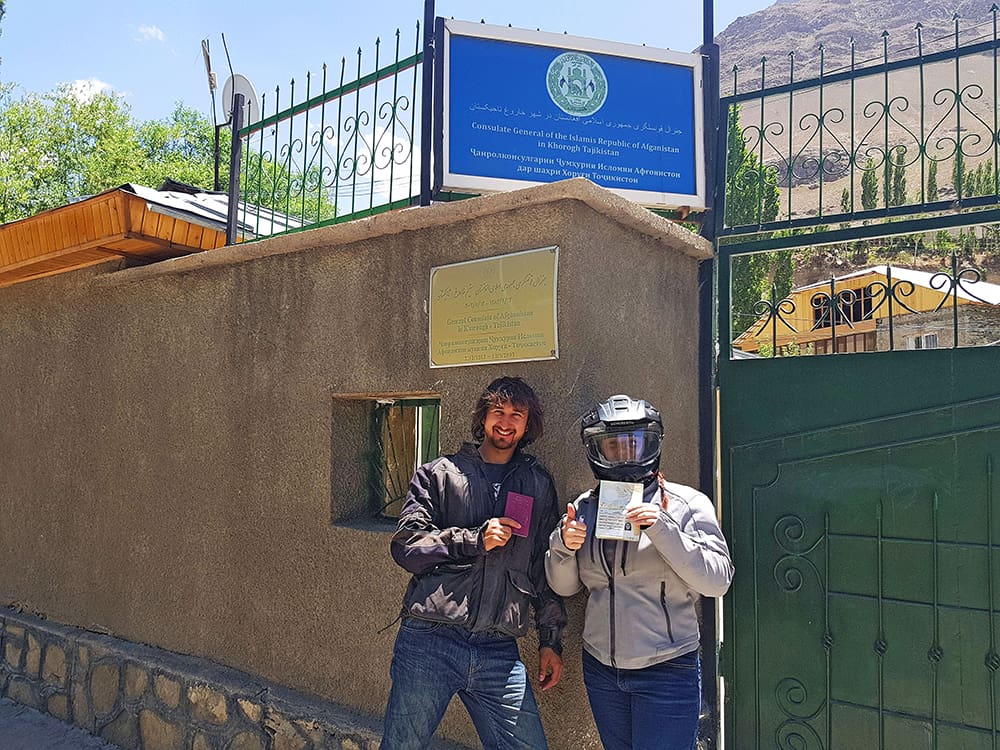
Words Andy Davidson Photography Alissa Potter
